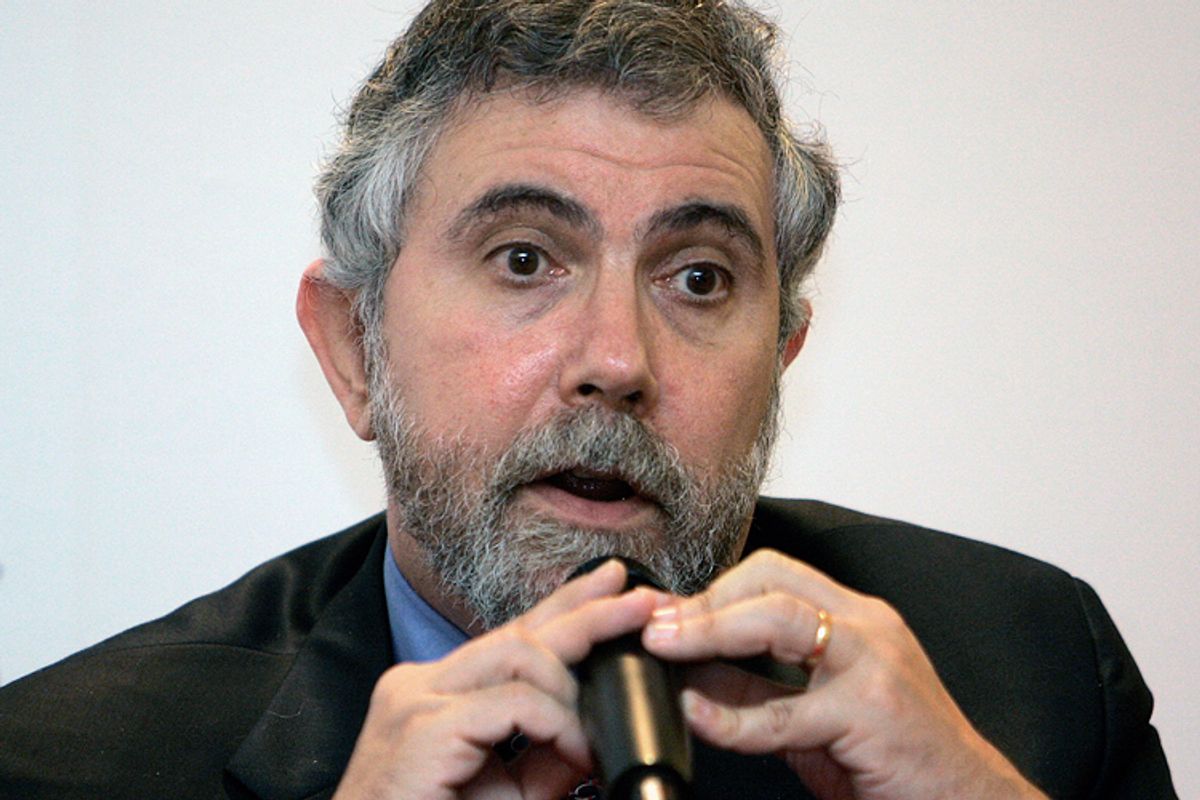Continuing his fierce criticism of Vladimir Putin's job performance as Russian president, economist and New York Times columnist Paul Krugman writes today that the economic crisis confronting Russia illustrates the perils of a warmongering foreign policy -- perils, Krugman argues, that the disastrous Iraq War should have made abundantly clear.
"You can’t treat a modern society the way ancient Rome treated a conquered province without destroying the very wealth you’re trying to seize," Krugman explains. "And meanwhile, war or the threat of war, by disrupting trade and financial connections, inflicts large costs over and above the direct expense of maintaining and deploying armies. War makes you poorer and weaker, even if you win."
Take Russia's annexation of Crimea. As Krugman notes, the former Ukrainian territory's economy is in miserable shape, and the region is "in no position to pay tribute." So, Krugman asks, why would Putin pursue such a foolhardy foreign policy -- and why do so many American conservatives praise Putin -- grudgingly or not -- as a strong, savvy leader?
The answer to the former question, Krugman suspects, is that the former KGB agent's background as a "professional thug" inclines him to favor an aggressive foreign policy. Meanwhile, Krugman contends, many American elites remain deeply convinced that bluster and aggression pay off in foreign policy; the Iraq fiasco taught them nothing.
"One suspects, by the way, that this false notion of power was why the architects of war made torture routine — it wasn’t so much about results as about demonstrating a willingness to do whatever it takes," he writes.
But in the final analysis, such an approach to the world is fundamentally reckless, Krugman concludes:
The truth, however, is that war really, really doesn’t pay. The Iraq venture clearly ended up weakening the U.S. position in the world, while costing more than $800 billion in direct spending and much more in indirect ways. America is a true superpower, so we can handle such losses — although one shudders to think of what might have happened if the “real men” had been given a chance to move on to other targets. But a financially fragile petroeconomy like Russia doesn’t have the same ability to roll with its mistakes.
I have no idea what will become of the Putin regime. But Mr. Putin has offered all of us a valuable lesson. Never mind shock and awe: In the modern world, conquest is for losers.



Shares